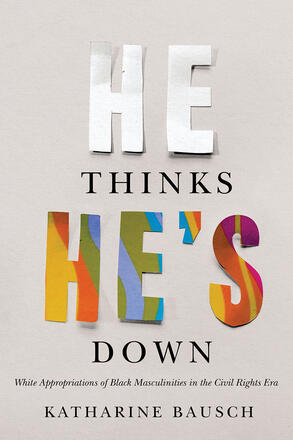
He Thinks He's Down
White Appropriations of Black Masculinities in the Civil Rights Era
Drawing on literature, fashion, and film, Katharine Bausch explores the ways in which white men appropriated Black masculinities to negotiate what it meant to be a man in America during the Civil Rights Era.
Description
The end of the Second World War saw a “crisis of white masculinity” brought on by social change. As a result, several prominent white male pop culture figures sought out and appropriated African American cultural trappings to benefit from what they believed were powerful Black masculinities. In He Thinks He’s Down, Katharine Bausch draws on case studies from three genres – the writings of Norman Mailer and Jack Kerouac, advertising and aesthetics in Playboy magazine, and action narratives of Blaxploitation films – to illustrate how each one engaged with Black tropes while simultaneously doing little to change the racial and gendered stereotypes that perpetuated the power of white male privilege.
Reviews
Bausch asks important and intriguing questions regarding white masculinity and Black men in the postwar era.
- G.R. Butters Jr., Aurora University